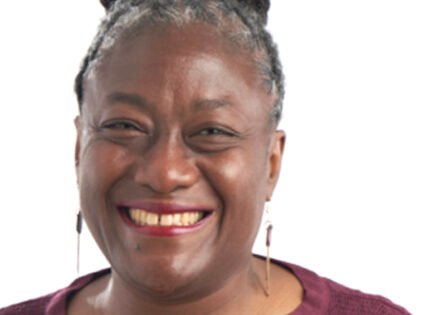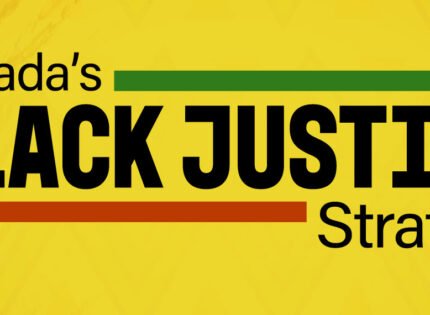Montreal’s police chief Fady Dagher says officers will be required to tell people why they’ve been stopped — and make clear that they are free to walk away — as part of a revamped street-check policy he casts as a turning point in relations with communities that have long felt over-policed.
“We want to make sure citizens don’t feel detained,” he said in an interview with the CONTACT Too many racialized residents, he added, “think they have no rights and they must answer” when approached by an officer. “From the beginning, they have to understand they’re allowed to leave.”
The pledge arrives amid a years-long debate over the role and reach of “street checks,” non-criminal police encounters that critics say have disproportionately swept up Black, Arab, Latino and Indigenous Montrealers. The chief rejected calls for a moratorium and instead sketched a two-track strategy: tightening the rules for when a stop can occur and trying to change police culture from the inside out.
At the core of the new policy is a higher bar for initiating a stop. Officers must cite “observable facts,” not vague hunches. He offered straightforward examples: a hand-to-hand exchange at a metro entrance that appears to be a transaction, or an adult photographing children in a park in a way that reasonably concerns parents. In those cases, an officer can approach, identify themselves, explain the reason, and — crucially — say, “If you want to, you can leave.”
He drew a bright line between such encounters and traffic enforcement. “If an officer stops you because you ran a red light, you are obligated to answer the questions. You have no choice,” he said. Street checks, he emphasized, are not car interceptions.
To ensure the new rules are followed, the SPVM is creating a six-person internal review team to examine every street check for compliance and signs of racial or social profiling. He expects the first citywide picture of how the policy is working “at the beginning of 2026.”
Internal audits will not, on their own, convince skeptics. The department is designing a hybrid external committee — “from the outside,” he said — to scrutinize practices and report back. Profiles are still being set but could include community leaders and legal experts. “We’re not choosing friends,” he said. “We’re choosing people who can challenge us and give us transparency.”
Whether those findings will be public remains an open question. The chief cited legal constraints and technology needs, saying the scope and cadence of disclosures will depend on funding. “I have to make sure we do it the right way,” he said.
Civil-rights advocates have argued that anything short of a pause on checks is a half-measure, given years of evidence of disproportionate impacts. The chief’s answer is to lean into hiring and training reforms rather than halt the practice. New recruits are screened as much for emotional competence — openness, impartiality, curiosity — as for technical skills, he said. And a flagship immersion program requires officers to shed their uniforms and weapons and spend five weeks embedded in communities, including Black neighborhoods and groups facing mental-health challenges.
The idea, he said, is to “open their minds” to the lived realities of the people they serve — “what they will be facing for the next 30 years.” About 300 officers a year cycle through the program; “almost 1,000” have completed it so far, with a goal of roughly 2,500. The department has added follow-on sessions featuring legal training, de-escalation, and testimony from residents about how police interventions feel on the other side of the badge. “It’s a very, very huge difference in the culture,” he said.
The complaints process remains a sticking point. Formal misconduct allegations are handled by a provincial watchdog created in the early 1990s. The chief conceded what community members often say quietly: the process is slow and opaque. While bound by conflict-of-interest rules, he said he favors simpler, more direct pathways for residents to tell their local stations when a street check feels unwarranted or biased. “We can still talk,” he said. “You can still tell your neighborhood [station]. I can look into it.”
Tensions flared this spring after organizers canceled a Haitian Flag celebration, a 15-year tradition, citing a “hostile police environment.” The chief flatly disputed that characterization. He said last year’s event ended with a fight and gunfire, forcing tighter security. “We have nothing to do with the cancellation,” he said, noting permitting decisions are made by the city. He added that organizers held two other activities elsewhere — one in the street — and police “tolerated” them while focusing on safety.
As for trust, the chief described a grind more than a breakthrough. The SPVM has “rebooted” standing committees with community leaders and meets “very often during the year,” he said, but public confidence is “still not the field.” The hope is that oversight, culture change and visible, human encounters can bend perceptions.
That last part is why the chief keeps showing up for what he calls “tous pour la paix” — friendly games that pair officers with residents. There’s weekly soccer between police and unhoused Montrealers, basketball in schools, and lunch-hour matches with youth where, as he put it, a fleeting image — an officer sliding a pass to a teenager — might open a conversation later.
“When you see that you played soccer with this police officer at lunchtime,” he explained, “if you have a problem, you might call that officer to talk.”
He’s been at it for decades. “In 1991, I was wearing my uniform, playing soccer with them,” he recalled. The point, then and now,
is to replace a posture of command with one of contact and, eventually, consent.
“It’s not a finish line,” he said. “For me, this is a cause: doing the right thing and letting the community judge whether we are on the right path.”















